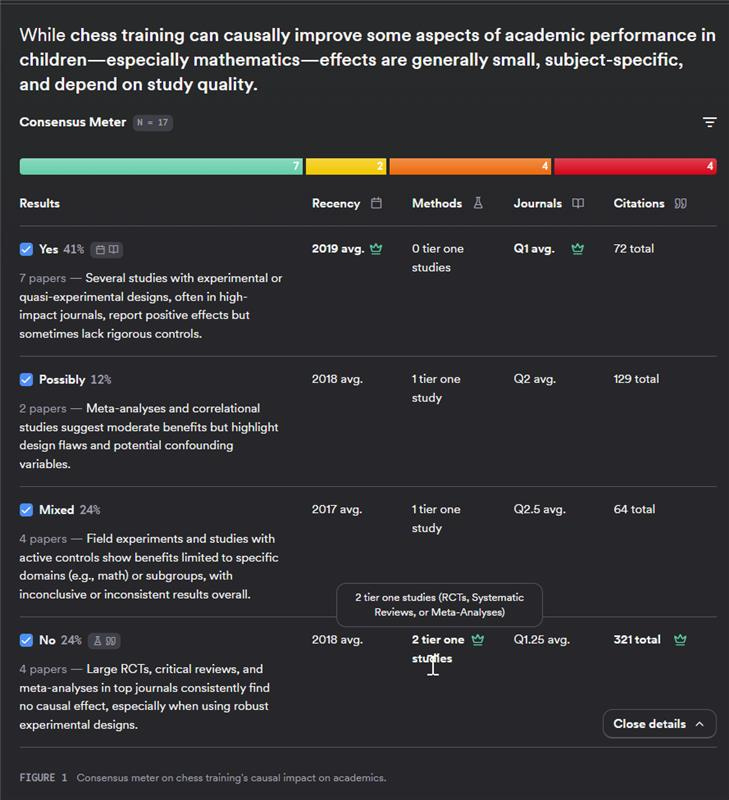
Academic librarians are increasingly being asked about AI-powered search tools that promise to revolutionize literature discovery. Consensus is one of the more prominent and earliest players in this space (alongside Elicit, Perplexity), positioning itself as a tool that can not only find relevant papers but assess the “consensus” of research on a topic.




